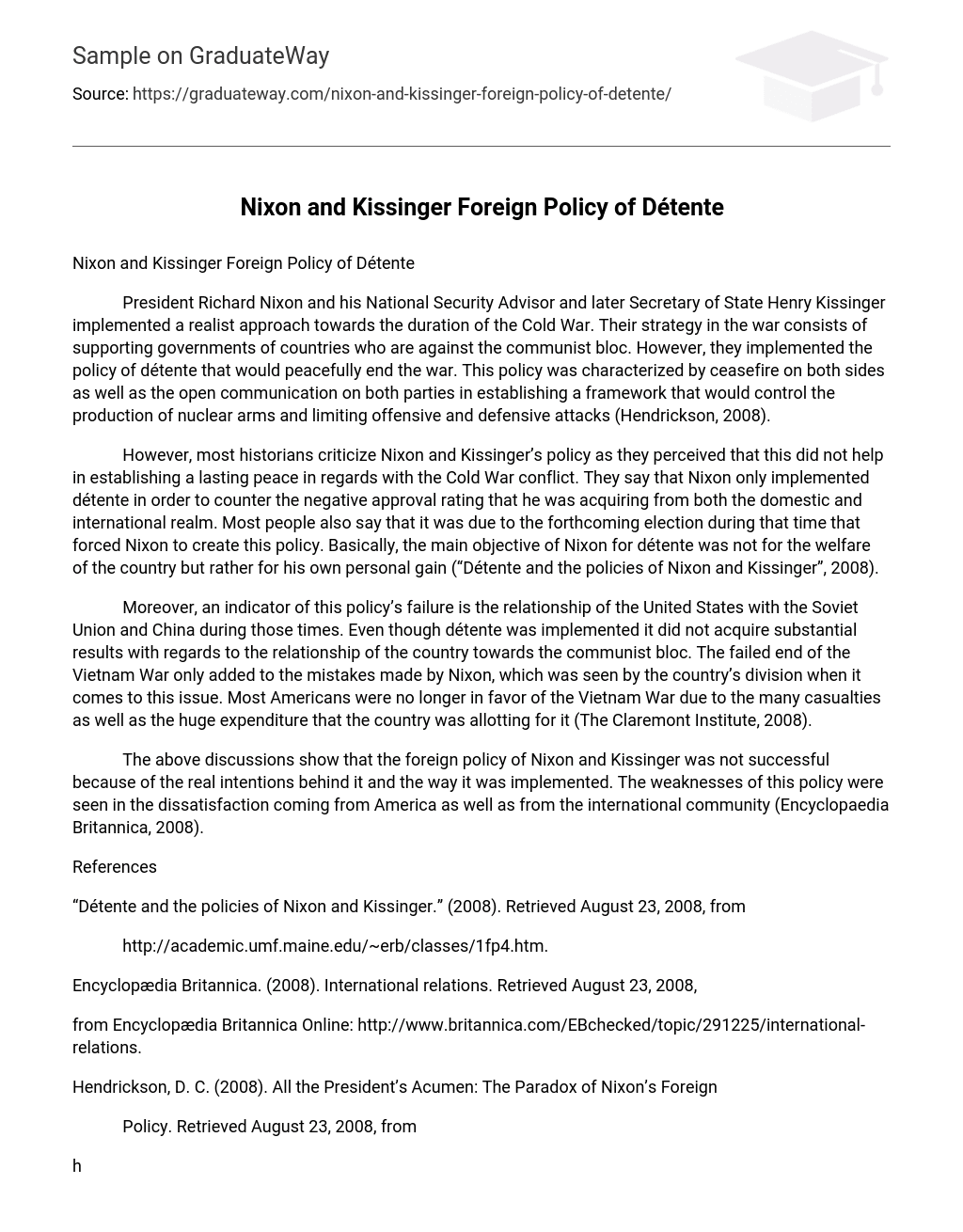President Richard Nixon and his National Security Advisor and later Secretary of State Henry Kissinger implemented a realist approach towards the duration of the Cold War. Their strategy in the war consists of supporting governments of countries who are against the communist bloc. However, they implemented the policy of détente that would peacefully end the war. This policy was characterized by ceasefire on both sides as well as the open communication on both parties in establishing a framework that would control the production of nuclear arms and limiting offensive and defensive attacks (Hendrickson, 2008).
However, most historians criticize Nixon and Kissinger’s policy as they perceived that this did not help in establishing a lasting peace in regards with the Cold War conflict. They say that Nixon only implemented détente in order to counter the negative approval rating that he was acquiring from both the domestic and international realm. Most people also say that it was due to the forthcoming election during that time that forced Nixon to create this policy. Basically, the main objective of Nixon for détente was not for the welfare of the country but rather for his own personal gain (“Détente and the policies of Nixon and Kissinger”, 2008).
Moreover, an indicator of this policy’s failure is the relationship of the United States with the Soviet Union and China during those times. Even though détente was implemented it did not acquire substantial results with regards to the relationship of the country towards the communist bloc. The failed end of the Vietnam War only added to the mistakes made by Nixon, which was seen by the country’s division when it comes to this issue. Most Americans were no longer in favor of the Vietnam War due to the many casualties as well as the huge expenditure that the country was allotting for it (The Claremont Institute, 2008).
The above discussions show that the foreign policy of Nixon and Kissinger was not successful because of the real intentions behind it and the way it was implemented. The weaknesses of this policy were seen in the dissatisfaction coming from America as well as from the international community (Encyclopaedia Britannica, 2008).
References
“Détente and the policies of Nixon and Kissinger.” (2008). Retrieved August 23, 2008, from
http://academic.umf.maine.edu/~erb/classes/1fp4.htm.
Encyclopædia Britannica. (2008). International relations. Retrieved August 23, 2008,
from Encyclopædia Britannica Online: http://www.britannica.com/EBchecked/topic/291225/international-relations.
Hendrickson, D. C. (2008). All the President’s Acumen: The Paradox of Nixon’s Foreign
Policy. Retrieved August 23, 2008, from
http://www.foreignaffairs.org/19980501fareviewessay1394/david-c-hendrickson/all-the-president-s-acumen-the-paradox-of-nixon-s-foreign-policy.html.
The Claremont Institute. (2008). Policy and Principle: Reconsidering the Realism of Nixon’s
Foreign Policy. Retrieved August 23, 2008, from
http://www.claremont.org/publications/pubid.501/pub_detail.asp.





